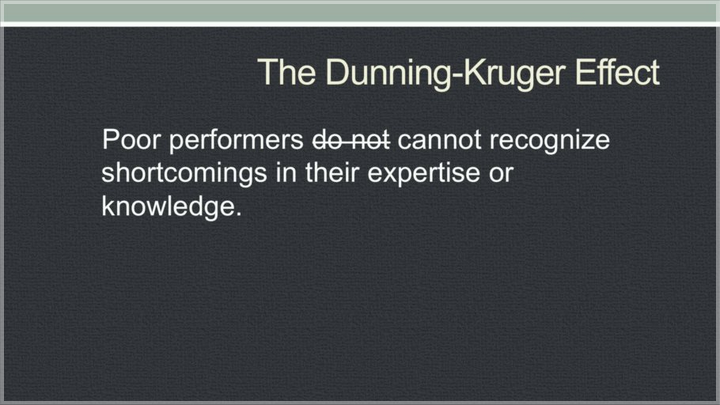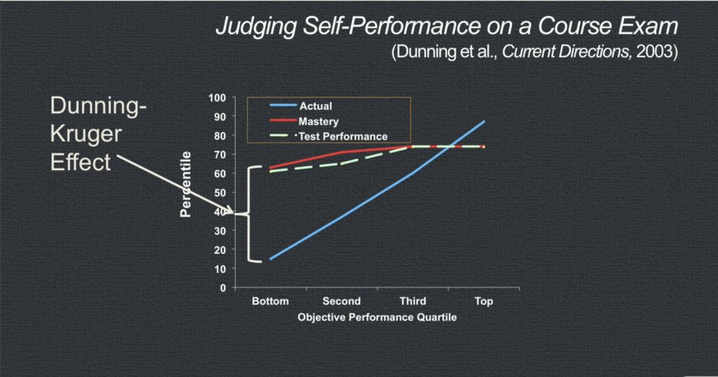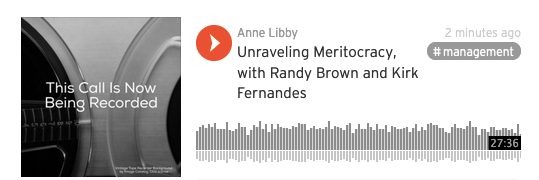Competence: On Management #48

Hi, it's Anne Libby, and thank you reading On Management. This time, it's one of my deep dives, on competence. If you're a new reader, welcome!
Management competence is an admixture of method, situational awareness, and relationship traction.
Method is the semi-straightforward execution of basics, like setting and articulating goals and expectations, providing people with resources and feedback, and evaluating progress and performance.
“Situational awareness is the ability to identify, process, and comprehend the critical elements of information about what is happening to the team with regards to the mission. More simply, it’s knowing what is going on around you."
Situational Awareness? A. Bartlett, at Aviation Safety
Situational awareness is sensing the environment. Things like, which team member is bored, and who's burned out. Which executive loves your project, and who wants to kill it. What's going on in the market, and how your team can deliver on what clients and stakeholders really want.
“The capacity to form relationships that are ‘real’ not just transactional. Sufficient emotional understanding to build collaborative teams that deliver results." Relationship traction, per Karol Wasylyshyn, Are Leaders Born or Made.
Relationship traction is the ability to navigate the interpersonal. Like, negotiating a beef between two departments, recovering after an error, effectively supporting a team member’s promotion.
Industry and organizational norms dictate how you apply method, the situations you're becoming aware of, and the relationships you're navigating. So context matters, a lot.
Management competence is more than a checklist of things to master.
So, the general nature of competence matters. You've probably heard of the Dunning-Kruger Effect.

The effect came to public awareness in the early 00s, based on a scholarly article by psychologists Justin Kruger and David Dunning, and the work has continued. To go directly to the source on this topic, here's a start:
- Why your boss is incompetent, via BBC Business Daily.
- We Are All Confident Idiots, by David Dunning, in the late, great Pacific Standard.
- Why Ignorance Fails to Recognize Itself, video of Dunning's 2019 classroom lecture at the University of Michigan.
- Unskilled and Unaware of It: How Difficulties in Recognizing One's Own Incompetence Lead to Inflated Self-Assessments, the 1999 article at the origin of the Dunning-Kruger Effect, by Justin Kruger and David Dunning.
- Self-Insight: Roadblocks and Detours on the Path to Knowing Thyself (library) (Bookshop) (Biblio, because yikes the book is expensive) is Dunning's readable overview of the scholarly landscape around competence and its barriers.
Barriers to competence
For poor performers to recognize their ineptitude would require them to possess the very expertise they lack.
We Are All Confident Idiots, David Dunning at Pacific Standard
To be clear, the journey to management competence starts with being not-yet-competent. I cringe when remembering my early people management mistakes.
Self-image, lack of knowledge - including failure to recognize "unknown unknowns," and inaccurate self assessment contribute to this (human) condition.
Self image
Last month, I decided to add Bernadette Henry’s beginner challenge to my exercise routine: jump rope 100 times, 5 days in a row. Well, I had to laugh. I couldn’t jump 10 times, at least not over the turning rope. This wasn’t the first time, or even the second, that my image that "I Am An Athlete" has surprised me, and not in a good way.
Self-image can stop us from seeing where we need to learn more, or from knowing when we should ask questions (or question our assumptions) before we jump into something.
Lack of knowledge
A friend’s new-to-the workforce relative had a question. A team member hadn’t come to work for a few days: should they write them up? My friend asked, “Did you call to see if they’re okay?” Um, good point.
The classroom and reading are fine ways to learn about well-defined tasks, like setting goals. Much of what you encounter as a manager is more ambiguous; there aren't always rules to guide your decisions.
We don't know what we don't know
Appalachian Mountain Club’s bi-annual journal, Appalachia, includes expert analysis of incidents where emergency responders were called for help, usually in the White Mountains. And where, time after time, people hike into situations they didn’t know enough to prepare for (cw: mountaineering injuries and death.)
The existence of professionals in a particular domain is an indicator that you might be in the territory of "unknown unknowns." Like employment lawyer and compensation/benefits analyst. Or mountain guide.
We think we're above average, and we're not
“…in college I staged a fighting game tournament…I invited people from around the country to the university to play a particular fighting game. And we had sort of a group of friends…who played this game...We thought that we were the best in the world…I had no problem inviting the champions from the country to come play against us. And every single one of us lost both of our matches immediately. Like, we didn’t even place. We didn’t even come close. We were absolutely destroyed.”
Transcript: Interview with David Dunning from Episode 036, David McRaney at You Are Not So Smart

Apparently, we all think we're above-average; it's a persistent effect across decades of research. I screengrabbed this slide from a 2019 lecture; a similar graph appears in the original 1999 Kruger-Dunning article.
This could be problematic at an organization led by an expert at raising capital, or building a product, when they fail to delegate operational authority to people with relevant skills.
We're not getting accurate feedback
Due to an editing error (by me,) this topic wasn't covered in the original email newsletter. I corrected my error in March, 2022's Warm Take: Feedback.
My kingdom for a competent editor, rather than, well, me.
One of my takeaways from reading some of David Dunning’s work is, “why are humans.”
We aren’t incompetent, and unable to see our incompetence, because we want to be stupid. For some reason, it's in the human condition; whether it’s a feature or a bug remains to be seen (cough cough climate change.)
It takes years of consistent practice as a manager to become pretty good at managing people. Knowledge and judgment come with time and experience, but it's about more than logging the hours: we need insight. We need other, skilled, people.
If you're an emerging manager, it's optimal to have access to competent managers who will answer questions, give feedback, and workshop your challenges with you.
When things don't go well, it's always good to ask, "What could I have done differently?" It's even better to talk it through with someone who can help you to see things you might have missed. If it's not smart or safe to ask naive questions of senior folks at work, consider how you can proactively cultivate relationships with people with relevant skills.
If you're an executive in a company working to develop your front line managers, it's critical to articulate your expectations for managers. And to create incentives for more experienced managers to mentor and coach junior people.
Unraveling Meritocracy
Randy Brown and Kirk Fernandes founded Merit in 2019 to connect underrepresented people in Design, Engineering and Product with mentoring conversations with senior leaders.
Mentoring conversations create possibilities to transmit information about unspoken social conventions that might trip us up at work – unless someone steps up and clues us in.
Kirk and Randy joined me to talk about the power of mentoring, and a manager’s role in helping team members to thrive in the workplace – especially when your team members aren’t white men.

You can learn more about Randy, Kirk and Merit at their website. And you can read articles by Kirk, Randy, and Rachel Spurrier like 10 tips on quitting your job, How to Build Relationships — Without an Office and Navigating Your Career on Medium.
I’ve edited our conversation for length, and clarity. And also for relevance, as we originally talked in early 2020. Back in March 2020, I didn’t have the heart to send the regular newsletter. Last month, I updated the audio, with Kirk's help.
An incomplete and slightly snarky list of achievements that aren't competence
Classroom excellence. During a blizzard, would you like to be a passenger in a car piloted by a 16 year old who got an A on the written Driver’s Ed test?
Competence in a domain. Is it better to learn CPR from an EMT, or a TikTok-famous influencer?
"If I don’t know a certain skill, I’ll watch a few videos on it. At that point, I understand it totally and am able to teach it." - Kat Norton, aka Miss Excel
How an Excel TikToker manifested her way to making six figures a day, by Nilay Patel at The Verge
Positional power. Just because you're President doesn't mean you know how to turn the gears of institutional governance. The Gatekeepers: How the White House Chiefs of Staff Define Every Presidency (library) (Bookshop) is one of my favorite books on executive leadership.
Confidence. Confidence is often mistaken for competence.
Books, Books, Books
Much of what’s expected at work is neither obvious nor commonsensical.
In my conversation with Randy and Kirk, I mentioned my pop-up newsletter, inspired by real life stories I heard about junior team members making “obvious” faux pas, and violating “common sense” rules. Pro-tip: if your CEO's open-door policy doesn't mean that they want people to Slack them with complaints? You have to tell your team members.
I've called these errors "How to Have a Job" errors, because they're not about talent or potential. They're sometimes about classism, sexism, racism, and reductive thinking.
I had thought there was a book in "How to Have a Job," and concluded that I wasn’t the person to write it. So I was over the moon to find Gorick Ng’s The Unspoken Rules: Secrets to Starting Your Career Off Right (library) (Bookshop) It's not just for recent college grads – it's for managers who want to get better at managing people who are new to the workforce.
Insight, Why We’re Not As Self-Aware as We Think, and How Seeing Ourselves Clearly Helps Us Succeed at Work and Life (library) (Bookshop) is exactly the kind of book I’m designed to reject. Looks self-helpy. A calling card for author Tasha Eurich's coaching business. Bla bla bla business book.
One of my takeaways from David Dunning’s Self-Insight (library) (Bookshop) (Biblio) is that one reason we're not-yet-competent is because we aren't able to get insight to how we really are. Insight does not emerge naturally from our solitary activity and introspection. It comes experience, and from processing our experiences with other people; even then, it can be hard to parse what we’re hearing and seeing.
I really like Insight, in spite of myself. As I listened to author Tasha Eurich read the audiobook, several times I felt myself start to object to her point; then, she would speak directly to my objection. Notably, she doesn’t advise false confidence or persistence in the face of untenable situations. Sometimes you're not getting good feedback. Sometimes you have to leave workplaces that aren’t working for you.
Eurich uses stories and references to research, and offers practical actions we can take to see ourselves — and our impact on others — more clearly.
Top performers and the Cassandra Quandry
- The graph from Dunning's talk, above, shows that top-performers don't see how far above-average they are. This isn't because they underestimate themselves; it's because they over-estimate everyone else.
- So, we can't see our own not-yet-competence, because we lack the knowledge to recognize competence. Similarly, we also may fail to recognize when other people are top performers; Dunning calls this the Cassandra Quandry.
My hypothesis would be that there's a messy line between these points and so-called Imposter Syndrome, but lol further analysis is outside of my sphere of competence. I may come back to this?
A question
Where might you have "unknown unknowns" about people management?
Links
- An incomplete list of skills senior engineers need, beyond coding, by Camille Fournier also contains an incomplete list of actions that factor into situational awareness and relationship traction.
- There's a point behind some of the PR/personal branding-infused Personal Board of Directors WSJ column: a handful of people inclined to respond to our questions is like gold. Find them in your organization, in industry Slacks/Discords (and events, when we can have them), or in community groups or your family.
- Stop Telling Women They Have Imposter Syndrome, by Ruchika Tulshyan and Jodi-Ann Burey at HBR. I'm looking forward to Ruchika's forthcoming Inclusion on Purpose:An Intersectional Approach to Creating a Culture of Belonging at Work.
- The First 90 Days, Proven Strategies for Getting Up To Speed Faster and Smarter, by Michael Watkins (library) (Bookshop). Because management competence is depends on context, your standard management practices may not work when you join a new organization. This dry-ish business book offers a solid blueprint for onboarding yourself at a new job, hopefully enabling you to see where you need to make changes accordingly. Managers can also learn from this book: onboarding new joiners is your job, too.
Thank you for reading, and thanks to the good people who support the newsletter financially. Many thanks to Randy Brown and Kirk Fernandes for joining me to talk about Merit.
Plans are in the offing for several upcoming deep dive issues, like this one, for 2022. If you're a new reader, I balance the deep dives with briefer Warm Takes. I'll be back with another Warm Take in a couple of weeks.
Inevitably, though I've proofread multiple times, I'll read this again and find typos and/or unclear sentences. I'll fix them* on The Internet.
May you and your loved ones be safe, healthy and free.
*indeed, several typos and inelegant turns of phrase have been edited out, post-newsletter drop. No, I didn't get them all.
ICYMI
- Warm Take: It's Still Groundhog Day
- Warm Take: The Resignation is actually not that great
- Warm Take, Reading and Believing
Endorse: If you love newsletters, The Sample is Jacob O'Bryant's newsletter discovery engine — it's like Tinder, but for newsletters? If you use my link to sign up, Jacob will send sample issues of newsletters you might like, with no obligation to subscribe. He'll also share my newsletter with other curious readers.